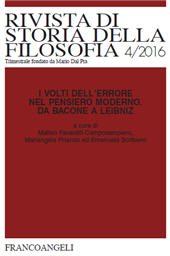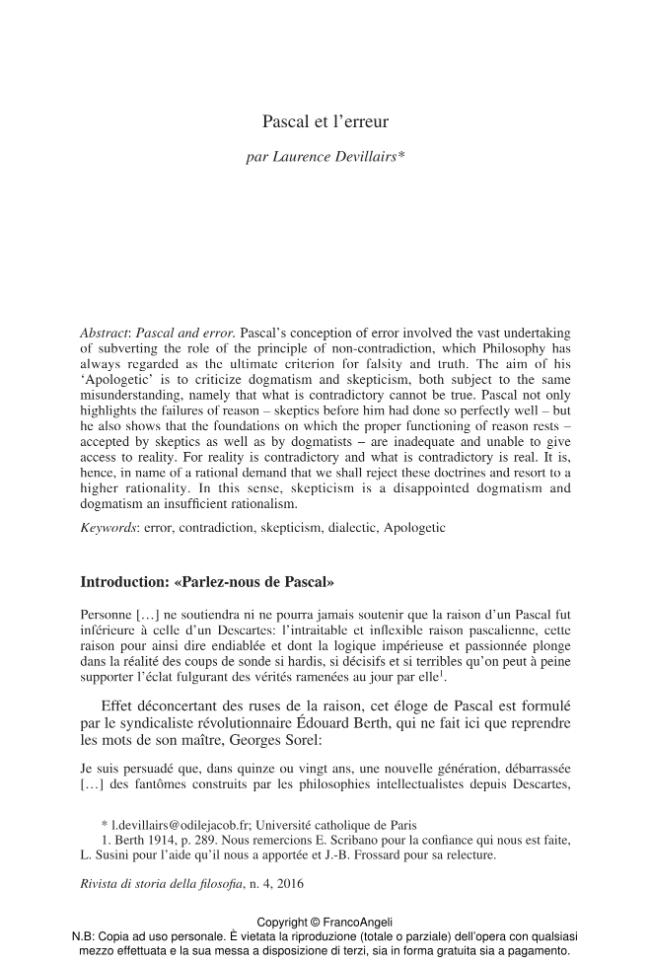Pascal et l'erreur
633-659 p.
Pascal's conception of error involved the vast undertaking of subverting the role of the principle of non-contradiction, which Philosophy has always regarded as the ultimate criterion for falsity and truth. The aim of his âÂApologetic' is to criticize dogmatism and skepticism, both subject to the same misunderstanding, namely that what is contradictory cannot be true. Pascal not only highlights the failures of reason - skeptics before him had done so perfectly well - but he also shows that the foundations on which the proper functioning of reason rests - accepted by skeptics as well as by dogmatists - are inadequate and unable to give access to reality. For reality is contradictory and what is contradictory is real. It is, hence, in name of a rational demand that we shall reject these doctrines and resort to a higher rationality. In this sense, skepticism is a disappointed dogmatism and dogmatism an insufficient rationalism. [Publisher's Text].
Ist Teil von
Rivista di storia della filosofia : LXXI, 4, 2016-
Artikel aus derselben Ausgabe (einzeln erhältlich)
-
Informationen
ISSN: 1972-5558
KEYWORDS
- Error, contradiction, skepticism, dialectic, Apologetic



